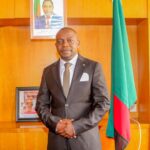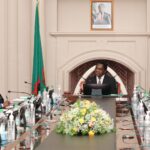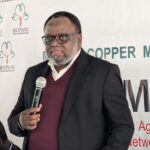Kenneth Kaunda, often hailed as one of the pivotal figures in African independence movements, was a seminal leader in Zambia’s history. As the country’s first President, Kaunda played an instrumental role in the fight against colonial rule and in shaping the nascent nation’s political landscape. His legacy extends beyond Zambia’s borders, impacting broader discussions on African nationalism and self-determination. Here are 20 essential things to know about Kenneth Kaunda, a leader whose influence and vision helped define a crucial era in Zambia’s history.
1. Early Life and Education
Kenneth David Kaunda was born on April 28, 1924, in Chinsali, Northern Rhodesia (now Zambia). Raised in a mission school environment, Kaunda developed an early interest in education and politics, which would later shape his leadership style.
2. Role in the Independence Movement
Kaunda was a key figure in the movement for Zambia’s independence from British colonial rule. He founded the United National Independence Party (UNIP) in 1959, which became a major force in the fight for self-governance.
3. Founding President of Zambia
Zambia gained independence on October 24, 1964, and Kaunda became its first President. His leadership marked the beginning of a new chapter for the country, transitioning from colonial rule to an independent state.
4. Advocated for African Socialism
During his presidency, Kaunda promoted a form of socialism adapted to African contexts, known as “Zambian Humanism.” This ideology aimed to balance economic development with social justice and unity.
5. Establishment of One-Party State
In 1972, Kaunda transformed Zambia into a one-party state under UNIP. He argued that this system was necessary to ensure national unity and political stability during the early years of independence.
6. Education Reforms
Kaunda’s administration placed a strong emphasis on education. He expanded access to schooling and aimed to eradicate illiteracy, recognizing that education was crucial for national development.
7. Role in the Liberation of Southern Africa
Kaunda was a vocal supporter of liberation movements in neighboring countries, such as Zimbabwe and South Africa. Zambia provided sanctuary and support to freedom fighters from these nations, reflecting Kaunda’s commitment to regional solidarity.
8. Economic Challenges
Despite his efforts to promote development, Kaunda’s presidency faced significant economic challenges, including inflation and a reliance on copper exports. These issues led to economic difficulties that persisted throughout his tenure.
9. Health and Agricultural Initiatives
Kaunda’s government invested in health and agriculture, seeking to improve living standards and self-sufficiency. Programs were introduced to combat diseases and enhance food production.
10. Zambia’s Non-Aligned Stance
Kaunda’s foreign policy was characterized by a non-aligned stance during the Cold War. He sought to maintain Zambia’s independence from both Western and Eastern blocs, focusing on the country’s interests and regional stability.
11. Promotion of National Unity
A major focus of Kaunda’s presidency was fostering national unity among Zambia’s diverse ethnic groups. His leadership emphasized reconciliation and integration, aiming to build a cohesive national identity.
12. Criticism and Opposition
Kaunda’s presidency was not without controversy. His one-party rule faced criticism from opposition groups and international observers who called for political pluralism and democratic reforms.
13. Transition to Multi-Party Democracy
Under growing pressure, Kaunda agreed to transition to a multi-party democracy in 1991. This move followed significant political unrest and demands for democratic reforms from various segments of Zambian society.
14. Electoral Defeat and Retirement
In the 1991 elections, Kaunda and UNIP were defeated by Frederick Chiluba and the Movement for Multi-Party Democracy (MMD). Kaunda peacefully accepted the outcome and retired from active politics.
15. Later Years and Legacy
Following his retirement, Kaunda remained an influential figure in Zambian and African politics. He continued to advocate for peace and development, leaving a lasting impact on the continent’s political landscape.
16. Author and Intellectual
Kaunda authored several books and articles on politics, philosophy, and history. His writings provide insights into his ideological perspectives and his vision for Africa’s future.
17. Humanitarian Work
Kaunda was involved in various humanitarian efforts, including supporting initiatives for health, education, and poverty alleviation. His commitment to social causes extended beyond his presidency.
18. Family and Personal Life
Kaunda married Betty Kaunda in 1952, and they had eight children together. His family life was relatively private, but his wife played a significant role in supporting his political and humanitarian activities.
19. Awards and Honors
Throughout his life, Kaunda received numerous awards and honors in recognition of his contributions to politics and social development. These accolades highlighted his role as a key figure in African history.
20. Death and Commemoration
Kenneth Kaunda passed away on June 17, 2021. His death was met with tributes from across the globe, reflecting his enduring legacy as a leader who played a crucial role in Zambia’s journey to independence and in the broader struggle for African self-determination.
Kenneth Kaunda’s legacy is deeply embedded in Zambia’s history and in the broader narrative of African independence. As Zambia’s first President and a key advocate for African socialism and regional solidarity, Kaunda’s impact continues to be felt. His contributions to education, social justice, and national unity remain integral to understanding Zambia’s evolution and the broader quest for self-determination across the continent. His life and work serve as a testament to the enduring spirit of leadership and commitment to a just and equitable society.






